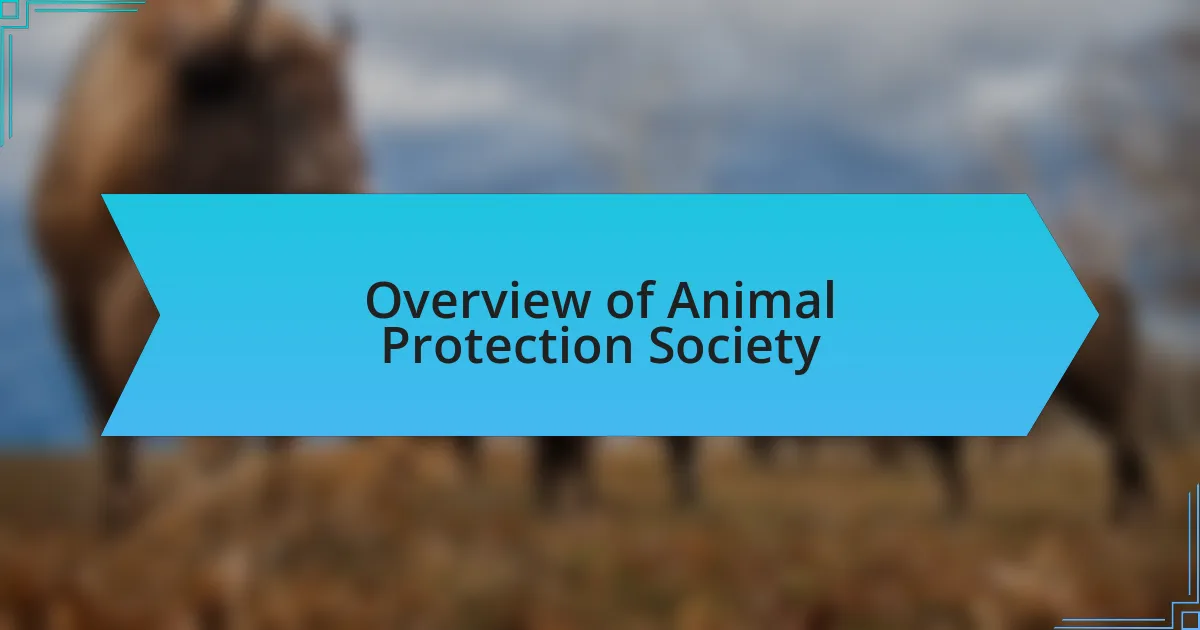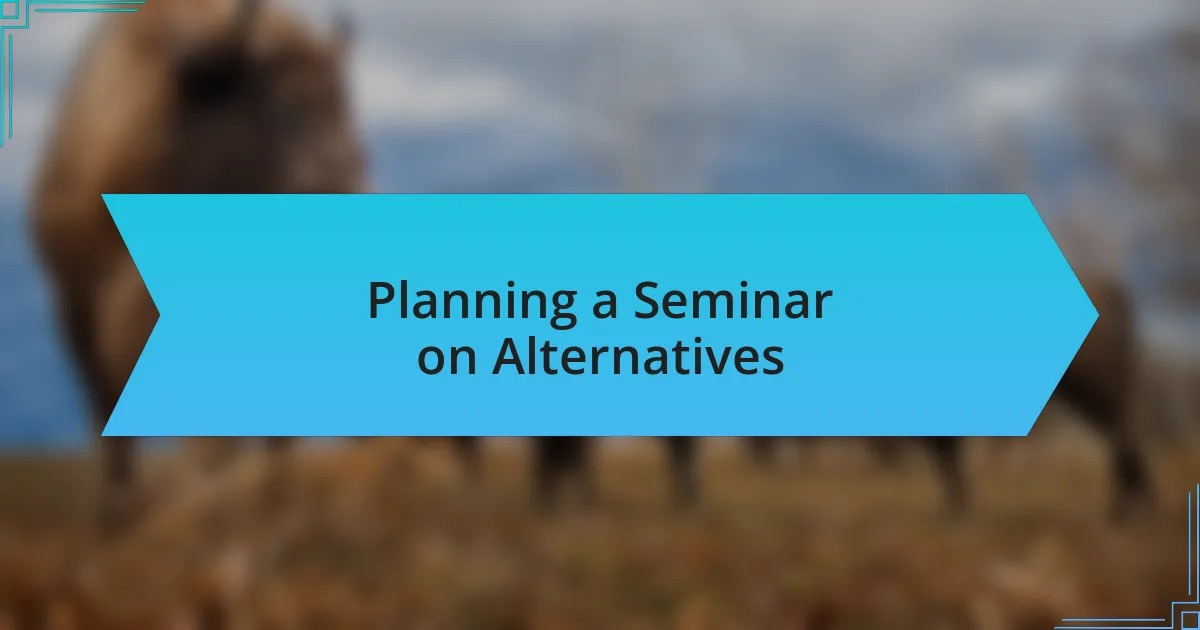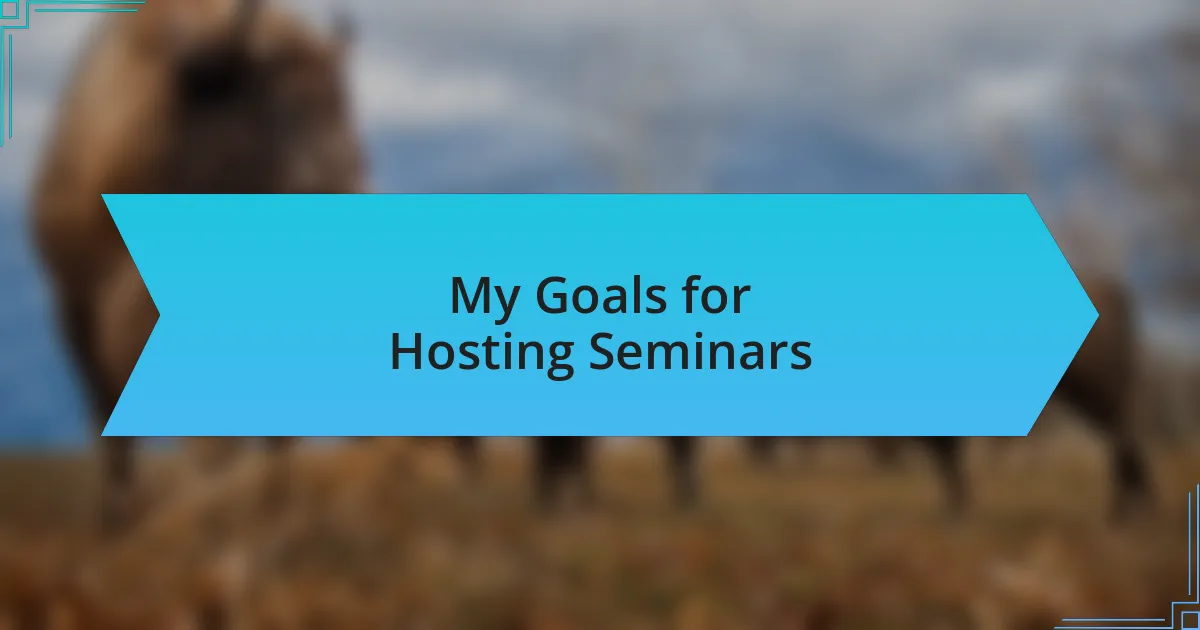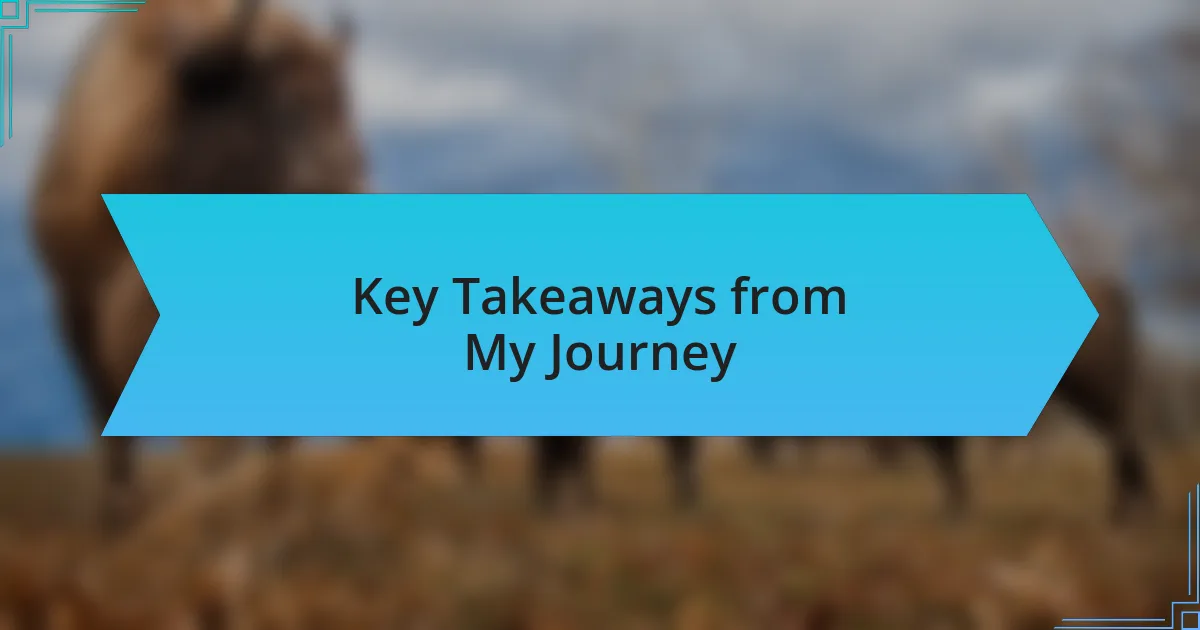Key takeaways:
- The Animal Protection Society effectively advocates for animal rights through community initiatives and legislative efforts.
- Engaging diverse audiences in seminars encourages interdisciplinary dialogue, enhancing understanding of alternatives to animal testing.
- Storytelling is a powerful tool to foster empathy and inspire action in promoting cruelty-free practices.
- Collaboration across sectors is essential for developing holistic solutions to complex animal welfare issues.

Overview of Animal Protection Society
The Animal Protection Society has been a beacon of hope for countless animals, advocating tirelessly for their rights and welfare. I remember attending my first seminar hosted by them, where I was moved by heartfelt stories of rescues that brought tears to my eyes, reminding me why this cause is so crucial. Can you imagine a world where every creature feels safe and loved?
This organization not only raises awareness about animal cruelty but also actively participates in legislation promoting animal rights. I have seen firsthand their efforts in lobbying for stricter regulations against testing products on animals, an issue that deeply resonates with all of us who care about living beings. Isn’t it uplifting to think about the positive changes we can achieve together?
Furthermore, the Society’s community initiatives truly reflect its core mission; they connect people who share a passion for advocacy. During one outreach event, I engaged with fellow animal lovers who inspired me with their dedication and innovative ideas. It made me wonder: how much more can we accomplish when we unite our voices for those who cannot speak for themselves?

Planning a Seminar on Alternatives
When planning a seminar on alternatives to animal testing, it’s essential to consider the diverse audience that may attend. I recall organizing a workshop where we invited not only scientists but also students and animal rights activists. The dialogues that emerged were rich and enlightening, demonstrating how much we can learn from different perspectives. How often do we overlook the value of a multidisciplinary approach to such a critical topic?
Choosing an engaging speaker can make a world of difference. I once attended a presentation by a researcher who had transitioned from traditional testing methods to innovative alternatives. The passion in their voice was contagious, making me reflect on my own beliefs about ethical research. This experience cemented my understanding that stories matter; they resonate with attendees and can inspire change. Wouldn’t you agree that compelling narratives hold the power to shift mindsets?
Finally, it’s crucial to create a welcoming environment where participants can freely share their thoughts. At one seminar, we facilitated breakout sessions that allowed for smaller, intimate discussions. I saw how participants opened up about their experiences and exchanged ideas, illuminating paths for future collaboration. What if we could harness that energy to fuel a larger movement for ethical practices?

My Goals for Hosting Seminars
One of my primary goals for hosting these seminars is to bridge the gap between academia and the public. I still remember my first seminar where I invited a renowned scientist to present his latest findings. The excitement in the room was palpable as attendees, regardless of their backgrounds, engaged deeply with the research. It left me wondering—how often do we witness breakthroughs simply by fostering open conversations between experts and laypeople?
Another important aspiration I have is to inspire actionable change through education. During one of my workshops, I encouraged participants to develop their own proposals for local initiatives that promote alternatives to animal testing. Watching them brainstorm ideas was a profound experience, reaffirming my belief that knowledge can spark creativity and motivate individuals to take meaningful steps. Don’t you think that empowering others to be advocates is essential in this movement?
Ultimately, creating a lasting community of advocates is essential to my mission. At one event, I noticed several attendees stay behind to network and share their own experiences, and I felt a sense of hope. This organic connection among individuals who care about animal welfare ignited a discussion that continued long after the seminar ended. How powerful is it when people feel supported in their passion? That sense of community is something I aspire to cultivate in every seminar I host.

Key Takeaways from My Journey
One of the most significant takeaways from my journey has been the impact of storytelling in promoting awareness about alternatives to animal testing. During a particularly memorable seminar, I shared a powerful narrative of a scientist who successfully replaced animal models with innovative, cruelty-free methods. The shift in the audience’s engagement was tangible; they didn’t just hear the facts, they felt the emotions behind them. It’s astonishing how a story can foster empathy and drive conversations.
Another key insight has been the importance of collaboration between sectors. I once facilitated a panel that included researchers, ethicists, and policy advocates. Their differing perspectives sparked a lively debate that illuminated new paths forward. This experience taught me that breaking down silos allows us to approach difficult issues more holistically. How often do we overlook the value of diverse viewpoints in creating lasting solutions?
Lastly, I’ve realized that patience is key in this movement. As I watched participants struggle with complex topics, it reminded me of my earlier days in this field, when I too grappled with understanding the science behind alternatives. Those moments of confusion transformed into breakthroughs as discussions evolved. It reassured me that progress is often gradual and that nurturing curiosity is a vital part of the journey. Isn’t it rewarding to witness others grow in understanding?